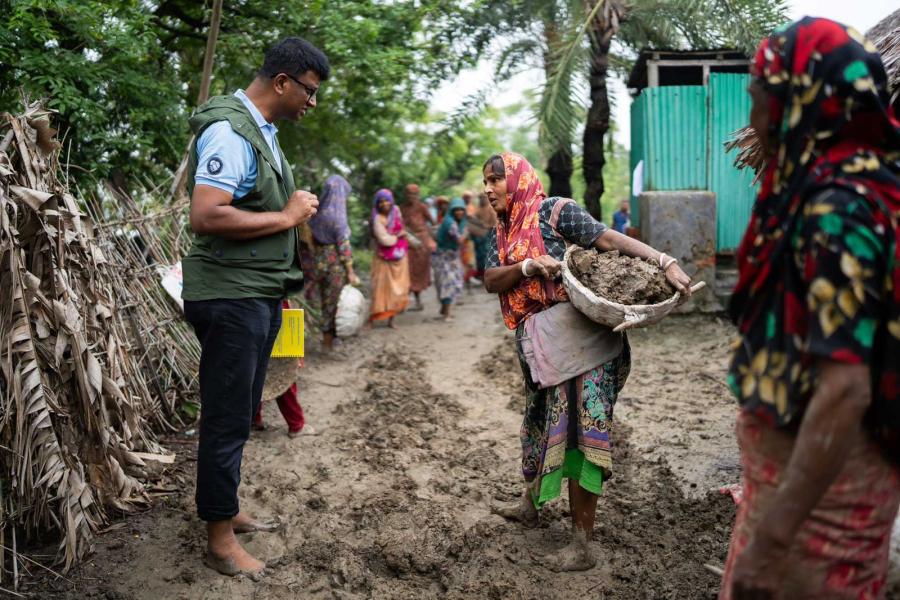On the frontline of climate change – WFP responds to Cyclone Remal, the first cyclone of 2024 in Bangladesh
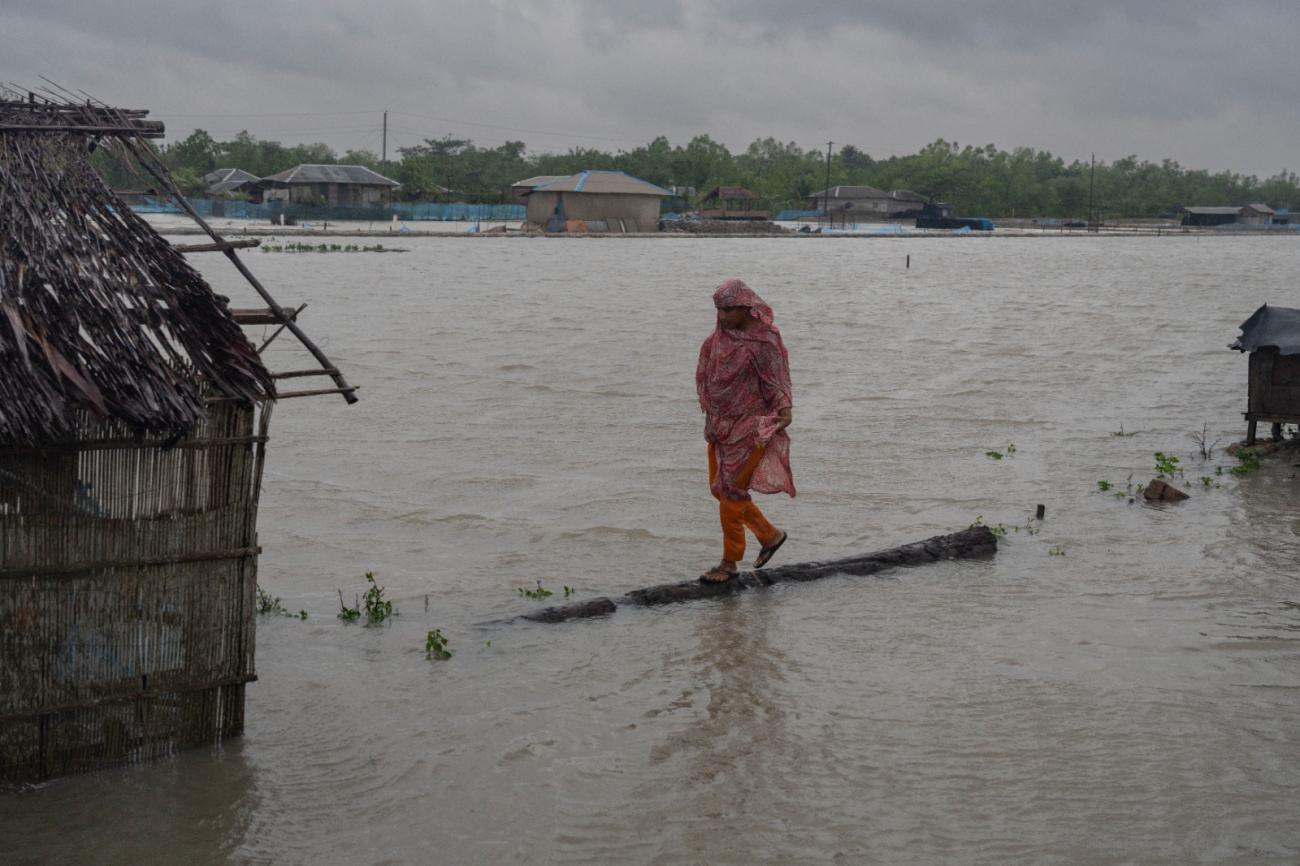
3 July 2024
On 26 May, Cyclone Remal hit the southern coastal regions of Bangladesh, resulting in 16 deaths and 4.6 million people affected. It has been declared the most severe cyclonic storm to have hit Bangladesh in the past 13 years.
Ahead of the storm, when the pre-set triggers for anticipatory actions were met, WFP dispatched forecast-based financing cash assistance. The distribution was conducted by WFP Khulna area office, headed by Mahfuz Alam, a veteran humanitarian, who has been working with WFP for 24 years.
“Anticipatory action saves lives and so does preparedness,” said Mahfuz from his office in Khulna, southern Bangladesh. “Way ahead of the cyclone season, together with our NGO partners, we went door-to-door to collect information about the extremely vulnerable families in the region, ensuring we know who is most at risk of the incoming storm.”
Bangladesh is an extremely disaster-prone country. Over the last century, nearly 2 out of every 10 cyclones that formed in the Bay of Bengal would hit Bangladesh.
Hours before Cyclone Remal made landfall, the anticipatory cash was provided to 30,000 households (150,000 people), at BDT 5,000 ($43) each through bKash, a popular mobile financial system in Bangladesh.
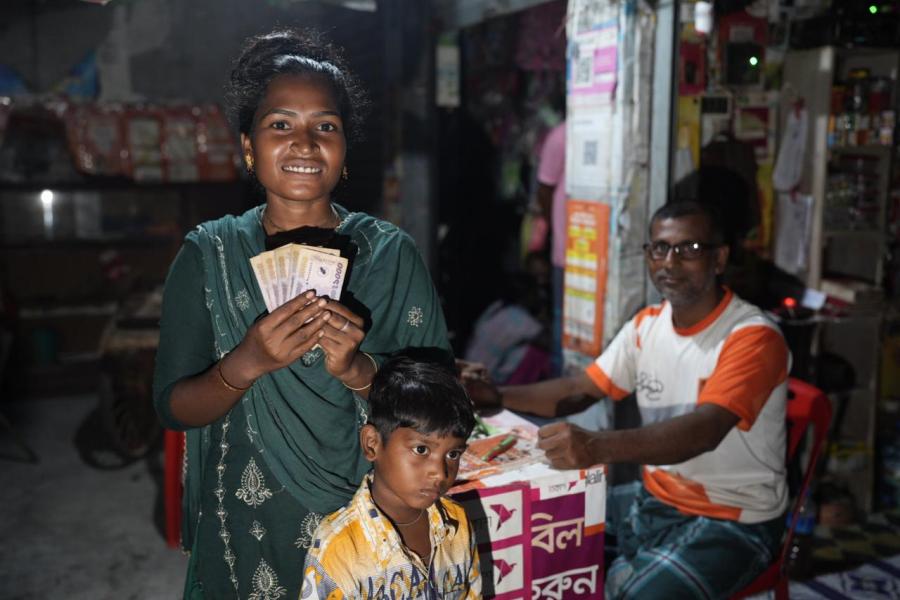
“With this cash, families bought essentials and saved some money for other expenditure for the days after the disaster,” said Tasnim Tabassum, Programme Associate at Khulna Field Office. Since joining WFP in 2020, she has witnessed 7 cyclones (Amphan, Sitrang, Mocha, Midhili, Hamoon, Yaas, and most recently, Remal) and the Shariatpur flood. “Remal is by far the most devastating of all of them,” she said.
Tasnim was already on the ground the next morning, on 27 May, when the cyclone was still wreaking havoc. “I worked in the heavy rainfall and wind as I needed to assess the situation and ensure that people in these areas are already in safe locations like the cyclone shelters,” she said. “If they have yet to move to the shelters, we would help them move.”
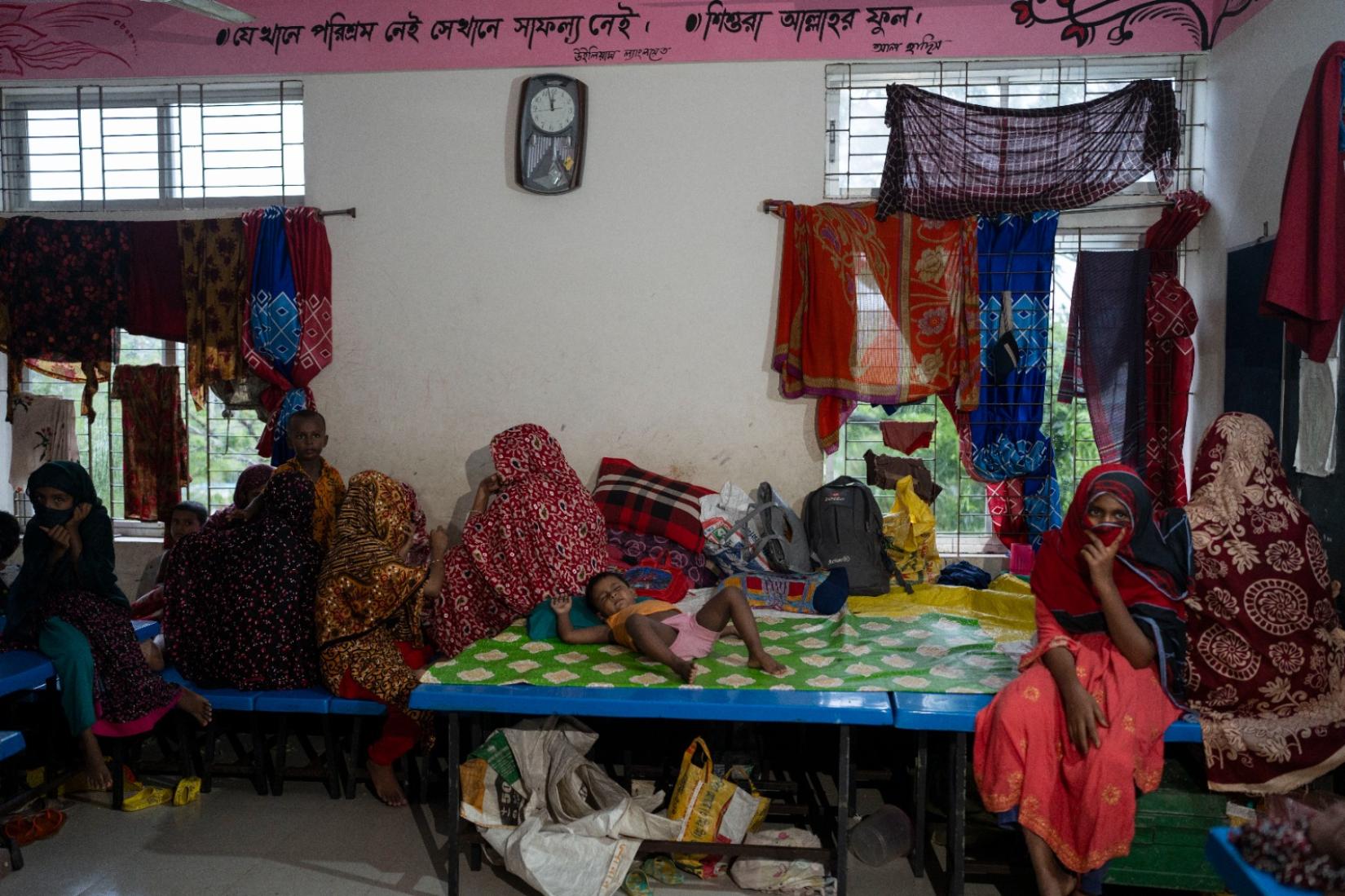
Altogether, more than 800,000 people were evacuated from their homes and moved to the cyclone shelters. But days following the cyclone’s passing, most of the families at the cyclone shelters were still there and couldn’t return.
“Many roads and embankments are badly damaged. Uprooted trees are all over the streets, blocking traffic and preventing families from returning to their homes. Stranded in the shelters, we came across many who were hungry and desperately seeking help,” said Tasnim.
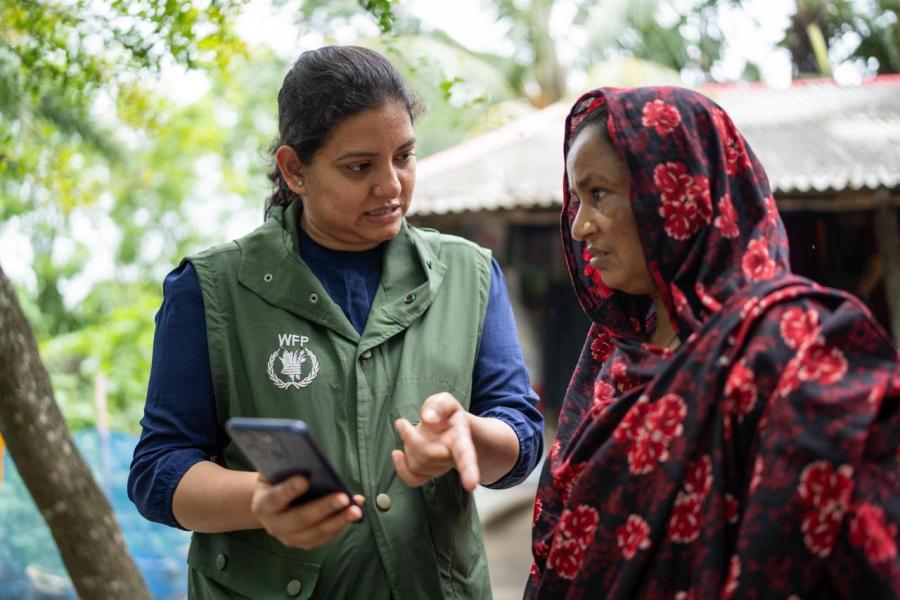
WFP distributed fortified biscuits, which are packed with calories and nutrients, to 42,000 families in the aftermath. These were the families who were still stuck in shelters and those who are moving back but had no means to cook for themselves. Awareness messages on food, nutrition and dietary diversity were disseminated along with the food assistance, through SMS, leaflets, and face-to-face communications, to help the families stay well in the difficult circumstance.
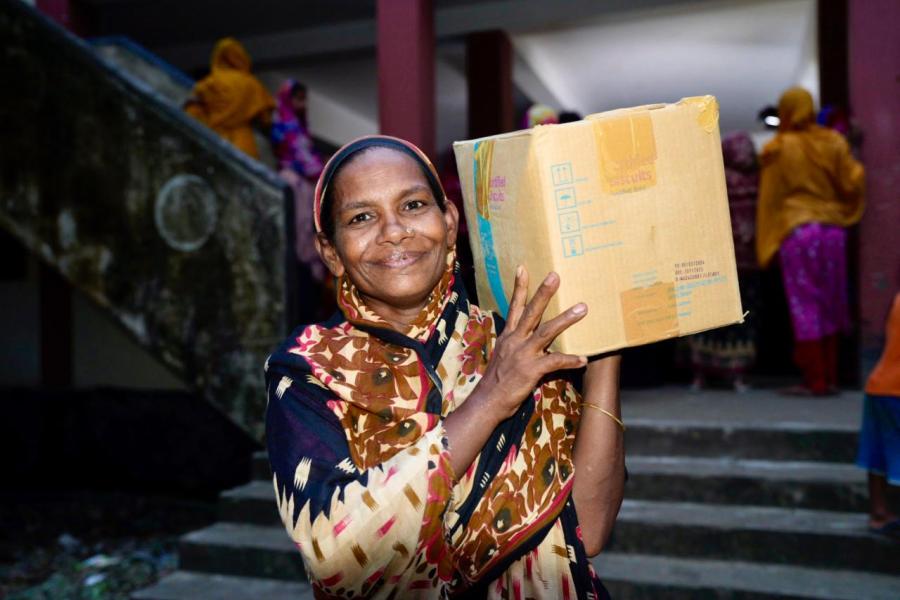
As economic loss caused by Cyclone Remal could reach tens of millions of dollars across the Khulna and Barishal divisions, there is a critical need for continued assistance as communities work to recover and rebuild their lives and livelihoods.
"In normal circumstances, most of these households earn their living from fishing, day labor, and other types of work. Because of the cyclone, their livelihoods were destroyed, and they will struggle to sustain themselves for at least a few more months. Our plan is to engage some of the most vulnerable families in cash-for-work activities, such as repairing embankments and roads damaged by the cyclone," said Mahfuz.
Mahfuz and his team aim to support approximately 100,000 families through various community work schemes. The supported families will also receive educational messages on food, nutrition, and hygiene.
"Each family can send one member. For every day they work, they can earn BDT 500 (USD 4.5). We know it is not much, but it will provide some relief. The investment we make today will contribute to their resilience against future shocks," Mahfuz explained.
To enable his team to carry out their plans, Mahfuz emphasized the need for funding support. Of the required USD 16.6 million, USD 10.5 million remains unfunded.
"We need to do more now to help affected families get back on their feet," Mahfuz urged. "In a disaster-prone country like Bangladesh, climate disasters are not a matter of if, but when. The monsoon season has just started, and it usually lasts until the end of October. This means we not only need to sustain our response to Remal but also be ready for other extreme weather events that may occur."
